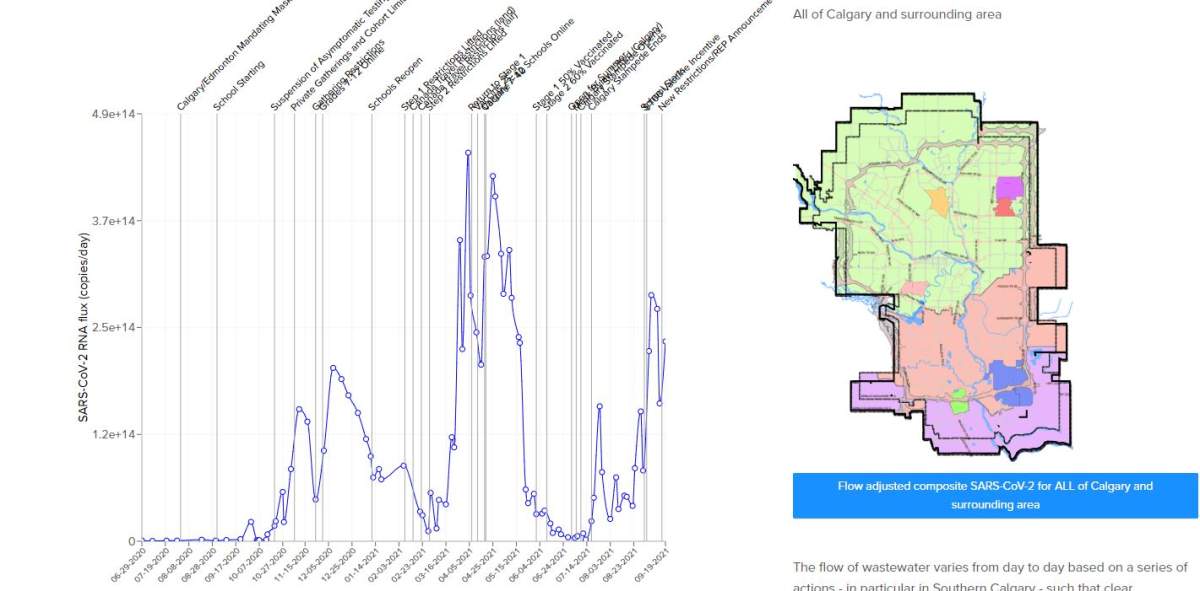While there have been slight dips in traces of the viral load found in Calgary’s wastewater in recent samples, researchers say it’s too early to tell if it’s evidence that Alberta’s devastating fourth wave is about to crest.

The study, led by the University of Calgary, has accurately predicted case numbers almost a week ahead of time since the project launched in July of 2020. Since then, it has tracked traces of SARS-CoV-2 found in a number of wastewater collection zones, hospitals, schools and even homeless shelters in Calgary.
Much of that data is displayed publicly on the Centre for Health Informatics website, which updates in real time.
“Moving this technology into other high-risk facilities like correctional facilities and shelters has proved really helpful,” said project lead Michael Parkins from Cumming School of Medicine. “We are expanding the monitoring beyond just communities and we’re doing so with the help — hopefully soon — of Alberta Health.”
The City of Calgary collects wastewater samples twice every week and the data is forwarded directly to the health minister’s office to inform policy on public health measures and targeted messaging.

Get weekly health news
This past summer, the province said wastewater testing would not only become more frequent, but would also expand to rural communities.
“Right now, we’re limited to sampling twice per week, based on financial constraints,” Parkins said. “But we hope that that changes very, very quickly based on partnership with Alberta Health. And when that does, we’ll have three times per week, and hopefully a 24-hour turnaround in data, which is what we’ve been planning for since the summer, and we’re just waiting for that to be enacted.”
That was part of Alberta Health Services’ plans to continue monitoring the spread of COVID-19 beyond symptomatic testing which was scheduled to end Sept. 27.
Early in September, health officials announced that testing would continue, and said they were still finalizing funding for the expansion of wastewater testing.
And researchers suggest the delay is costing the province valuable data.
“We’re really waiting to be able to enact more things,” Parkins said.
“We have the capacity, and all the sites that we’ve proposed to monitor are super keen to get involved, because it’s not a lot of work for them and it’s a great deal of information they get in return.”
“We just need to get the pipeline flowing, so to speak.”
The province had not responded to a request for an update on timelines at the time of publishing.






Comments
Want to discuss? Please read our Commenting Policy first.